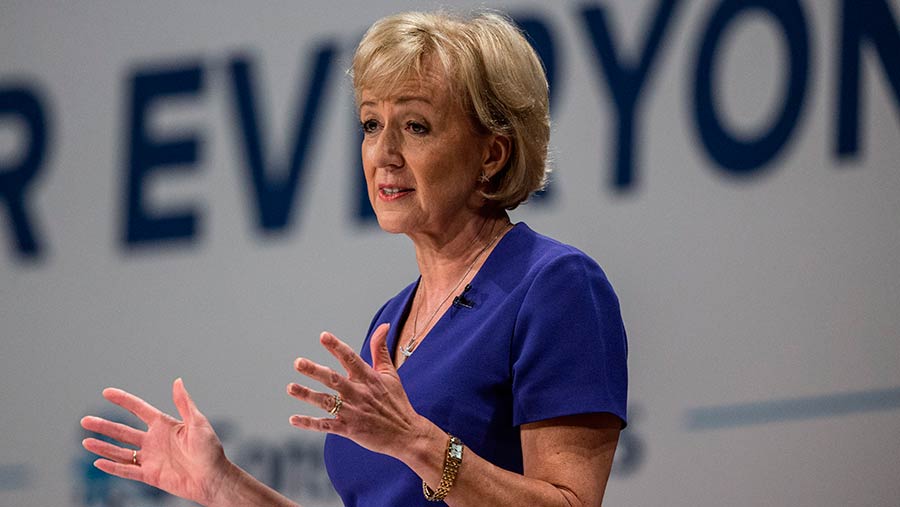Opinion: Fight fear and seize better farming future
 © James Gourley/REX/Shutterstock
© James Gourley/REX/Shutterstock Defra secretary Andrea Leadsom recently tweeted: “We are leaving the EU for a brighter future!”
Short, sharp and to the point. Perhaps a little light on detail, but it is hard to outline a country’s future agricultural policy in an 140 character tweet.
So I was looking forward to her address to last week’s NFU conference to hear more detail of what this “brighter future” looked like.
“I don’t have the final answers,” she said “but I will fight your corner at every opportunity.”
See also Opinion: My name is Matthew and I’m an addict
A crude straw poll by way of a show of hands suggested most of the 1,500 delegates weren’t convinced and neither was I.
But that didn’t dampen my optimism. I left Birmingham with a clearer sight of what farming needs for the future and how it will be best achieved.
“Farming is part of the UK’s largest manufacturing industry,” is a phrase you hear a lot at conferences this year.
Alliance
Although we may be the smaller partner of the UK’s £200 billion food and drink sector, this alliance will define our future success.
 Ian Pigott farms 700ha in Hertfordshire. The farm is a Leaf demonstration unit.
Ian Pigott farms 700ha in Hertfordshire. The farm is a Leaf demonstration unit. The director general of the Food and Drink Federation, Ian Wright, emphasised at the NFU conference that the food and drink industry must “stand together” and lead with one voice. Hurrah! Clarity, unity and direction.
But it is not just food and drink manufacturing that needs to stand together. Farming also needs to stand shoulder to shoulder with NGOs in the environment sector.
With strong leadership and a single voice, I would be confident that UK farming will thrive post Brexit.
This isn’t a view I had three months ago.
Would I have wanted basic payments to continue? Yes. Why? Fear. Fear that I would not have the skills or wherewithal to replace the foregone income and the industry’s jumbled rhetoric would not allow farming the freedom to thrive.
But the more I read and listen, the more I realise that the basic payment may not be the best way forward for my farming business. Nor is it in the best interest of UK farming.
Pillar one
Pillar one financial support has become a crutch that too many, myself included, have leant on too heavily.
In using a crutch we haven’t developed the muscles we need to thrive and move forward. Throw the crutch away, and yes we may fall down. But we will get stronger. It’s how we get up that will define our future.
Contrary to my fellow writer and friend Matt Naylor’s views (Opinion, 24 February), I was hugely impressed with many of the younger farmers that I met in Birmingham.
However, can we stop referring to 25- to 40-year-olds as the next generation? They need to be empowered and encouraged to innovate, invest and lead UK farming now, not in another 20 years.
The average age of a farmer may be 58. Let’s not stifle and tether the ambitions of younger farmers until they too reach that age.
In 1932 the farmer and writer AG Street wrote this: “The government has used practically every political method of helping the farming industry. Quotas, tariffs, subsidies, all these have been tried, and the fact remains that the position of our agriculture is materially worse than it was at the beginning.”
Eighty-five years later we have the opportunity to make farming materially better. With a unified voice and the drive and enthusiasm of youth to inspire us all, I too believe we have a brighter future.
